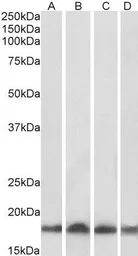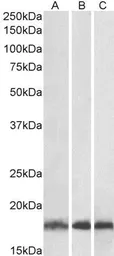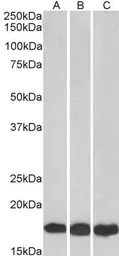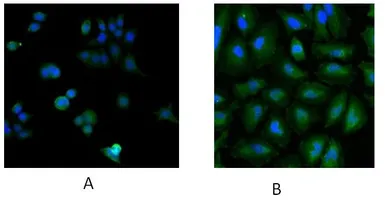UBE2L3 antibody, C-term
Cat. No. GTX89721
Cat. No. GTX89721
-
HostGoat
-
ClonalityPolyclonal
-
IsotypeIgG
-
ApplicationsWB ICC/IF
-
ReactivityHuman, Mouse, Rat, Pig




